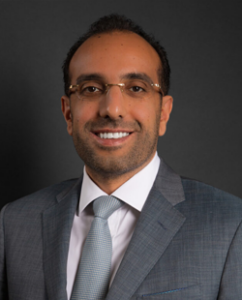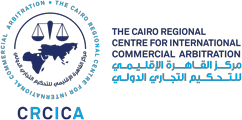Advisory Committee
CRCICA has an Advisory Committee currently consisting of a Chairperson, two (2) Vice Chairpersons, and fourteen (14) members appointed by the Director of the Centre from among the members of the Board of Trustees as well as eminent African, Asian and other personalities specialized in the fields of international arbitration, alternative dispute resolution (ADR) mechanisms and international trade.
The term of the Advisory Committee shall be four years, which may be renewed once for a similar term, unless otherwise determined due to special circumstances.
The Advisory Committee shall carry out the functions provided for in the Centre’s Arbitration Rules in force as from 15 January 2024 (the Rules) as well as any other functions that may be referred to in the Centre’s future Arbitration Rules, particularly the following:
a. Providing advice with respect to the Centre’s decision not to proceed with arbitral proceedings in whole or in part, according to article 6, paragraph 2 of the Rules;
b. Providing advice with respect to the Centre’s decision not to proceed with the appointment of any arbitrator according to article 12, paragraph 3 of the Rules;
c. Providing advice with respect to the Centre’s decision to accept or reject the Request for Consolidation in accordance with article 50, paragraphs 1 and 6 of the Rules;
d. Deciding on the removal of arbitrators according to article 13 of the Rules via an impartial and independent tripartite ad hoc committee to be composed by the Centre from among the members of the Advisory Committee without disclosing their names to the parties. The decision shall be made by the majority of votes of the members of the ad hoc Committee in writing, and shall be reasoned, final and unchallengeable;
e. Deciding on the removal of arbitrators according to article 8, paragraph 4 of Annex 3 to the Rules (Expedited Arbitration Rules) via an impartial and independent member to be selected by the Centre from among the members of the Advisory Committee without disclosing his or her name to the parties. The decision shall be made expeditiously by the member in writing and shall be reasoned, final and unchallengeable;
f. Deciding on the challenge of arbitrators according to article 14, paragraph 6 of the Rules via an impartial and independent tripartite ad hoc committee to be composed by the Centre from among the members of the Advisory Committee without disclosing their names to the parties. The decision shall be made by the majority of votes of the members of the ad hoc committee in writing and shall be reasoned, final and unchallengeable;
g. Deciding on the challenge arbitrators according to article 4, paragraph 6 of Annex 2 to the Rules (Emergency Arbitrator Rules) and article 8, paragraph 3 of Annex 3 to the Rules (Expedited Arbitration Rules) via an impartial and independent member to be selected by the Centre from among the members of the Advisory Committee without disclosing his or her name to the parties. The decision shall be made expeditiously by the member in writing and shall be reasoned, final and unchallengeable;
h. Providing advice with respect to the Centre’s decision to deprive any party of its right to appoint a substitute arbitrator according to article 15, paragraph 2 of the Rules; and
i. Providing advice with respect to the Centre’s determination, according to article 45, paragraph 13 of the Rules, of the fees of the arbitral tribunal at a figure higher or lower than that which would result from the application of the tables of fees annexed to the Rules.

Mr. Mohamed Shelbaya
Mohamed Shelbaya is a founding partner of Gaillard Banifatemi Shelbaya Disputes. Recognised as ‘‘a leading figure in arbitration,’’ he was previously a partner at Shearman & Sterling LLP, where he practiced for over twelve years, focusing on oil and gas and disputes related to the Middle East.
Mohamed has represented companies, States, and State-owned entities in more than 80 commercial and investment treaty matters, securing a number of landmark victories in multibillion-dollar disputes involving novel questions of international law and geopolitical issues. He also acts as President, Sole arbitrator, or co-arbitrator in commercial and investment treaty arbitrations under a variety of rules.
Mohamed teaches investment arbitration at Sciences Po Law School. He also serves as an LCIA Court member and President of the LCIA’s Arab Users Council.
Clients interviewed for the latest edition of leading directory Chambers Global describe Mohamed as ‘‘one of the best lawyers globally in oil and gas dispute resolution’’, ‘‘brilliantly skilful at what he does’’, and ‘‘extremely smart, sophisticated and commercial’’. Mohamed was featured in the 2023 edition of Global Arbitration Review’s ‘‘45 Under 45’’, a list, compiled once every decade, of the 45 most prominent arbitration practitioners worldwide under the age of 45.

